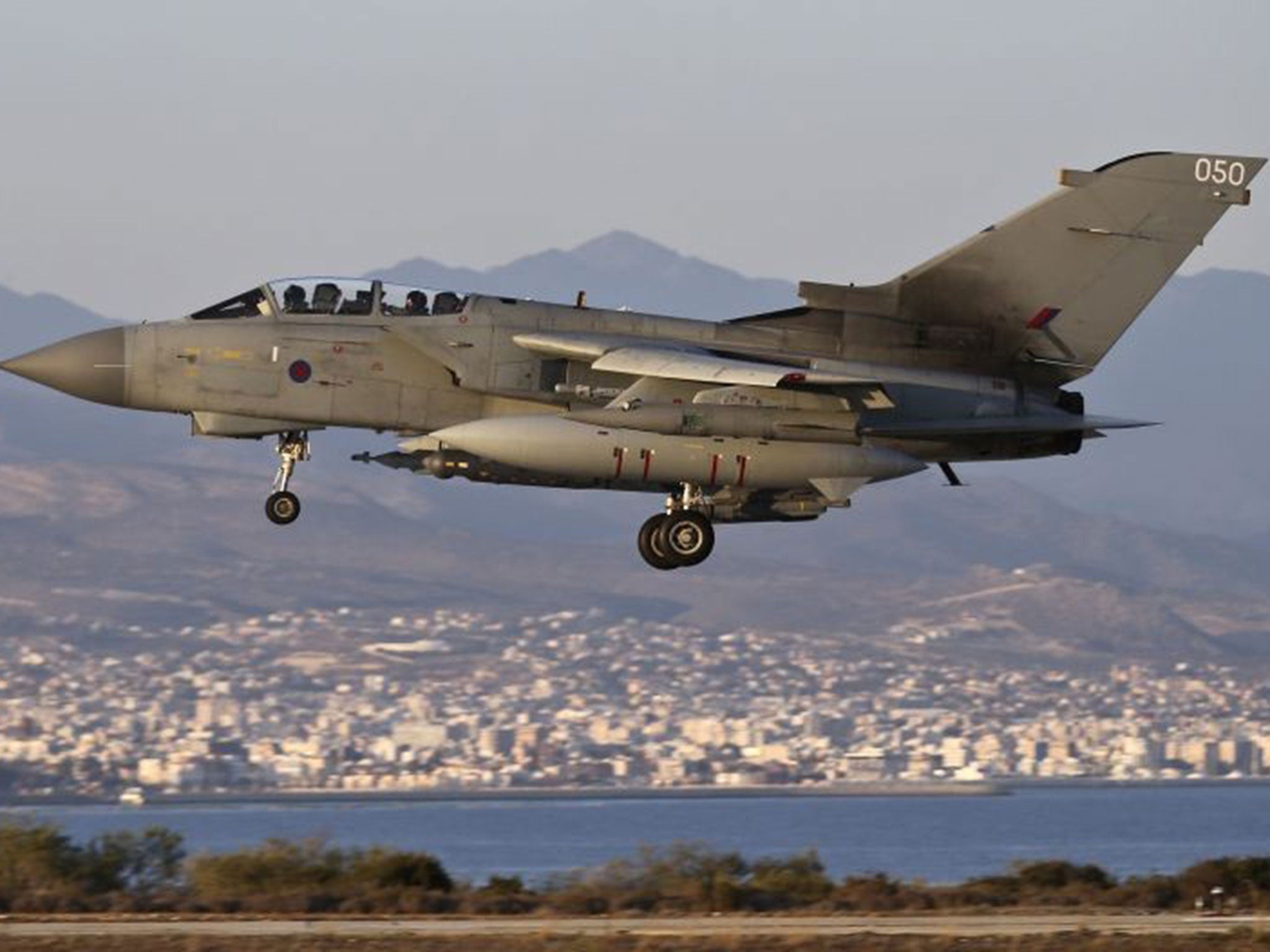Isis air strikes: US brings in Apache helicopters as British jets target militants in Iraq
RAF Tornado jets attacked Isis forces firing on Iraqi troops near Ramadi, while the US targeted the area near Fallujah

Your support helps us to tell the story
From reproductive rights to climate change to Big Tech, The Independent is on the ground when the story is developing. Whether it's investigating the financials of Elon Musk's pro-Trump PAC or producing our latest documentary, 'The A Word', which shines a light on the American women fighting for reproductive rights, we know how important it is to parse out the facts from the messaging.
At such a critical moment in US history, we need reporters on the ground. Your donation allows us to keep sending journalists to speak to both sides of the story.
The Independent is trusted by Americans across the entire political spectrum. And unlike many other quality news outlets, we choose not to lock Americans out of our reporting and analysis with paywalls. We believe quality journalism should be available to everyone, paid for by those who can afford it.
Your support makes all the difference.Apache helicopters are, for the first time, being used by the US military in Iraq to help in its assault against Isis.
Air strikes were reportedly undertaken at the weekend, including four to the north-east of Fallujah – just 40 miles west of Baghdad.
US Central Command said it hit “two mortar teams, a large [Isis] unit and two small [Isis] units”, while a strike to the south-east of Hit and another to the north-east of Sinjar destroyed three [Isis] Humvee vehicles.
It said it had used "helicopters" as well as "attack, bomber, fighter aircraft" to conduct the strikes, with all departing the areas safely.
The Apache AH-64 helicopters come equipped with sensors and hellfire missiles, the Wall Street Journal reports, and it is the first time the aircraft has been used in the western-led fight against the extremists.
It comes as Britain confirmed it has carried out further military action against Isis by dropping bombs on a building used by militants.
The Ministry of Defence said two RAF Tornado jets attacked Isis forces who were firing on Iraqi troops from a building near Ramadi, also to the west of Baghdad.
The RAF jets, based in Akrotiti, Cyrpus, resumed sorties in support of local ground forces in Iraq after a pause in respect of the Muslim holiday of Eid.
RAF Tornadoes have joined US-led bombing missions against Isis targets in northern Iraq after MPs gave the go-ahead ten days ago for Britain to join the military action.
Yesterday it was reported that the former Chief of Defence Staff had argued Western grounds troops should be deployed to Iraq to back up the forces battling the advance of Isis (also known as Islamic State and Isil) militants.
General Lord David Richards warned airpower alone would not be enough to defeat Isis forces as he said he feared that political leaders did not appreciate the scale of the task they faced.
The latest strikes came as Isis forces were engaged in fierce fighting close to the Turkish border.
In a sign that allied air strikes had not deterred them from seeking further territory, Isis militants have targeted the Syrian town of Kobani.
Kurdish forces claimed to have repelled an offensive by Isis yesterday, but reports suggested a fresh assault had been launched by Isis and their black flag has been raised above a building in the town.
The US has taken part in air strikes against Isis positions in Syria, but the British military effort has so far been confined to Iraq.
Idris Nassan, a senior spokesman for Kurdish fighters, told the Guardian: "Air strikes alone are really not enough to defeat IS in Kobani.
"They are besieging the city on three sides, and fighter jets simply cannot hit each and every Isis fighter on the ground."
Deputy Prime Minister Nick Clegg signalled he would be prepared to support British air strikes in Syria if the situation on the ground becomes less "chaotic".
But he told ITV's Good Morning Britain: "Additional air strikes in Syria will only have limited effect unless we can make sure that the forces we're supporting in Syria really can make progress on the ground."
Additional reporting by Press Association